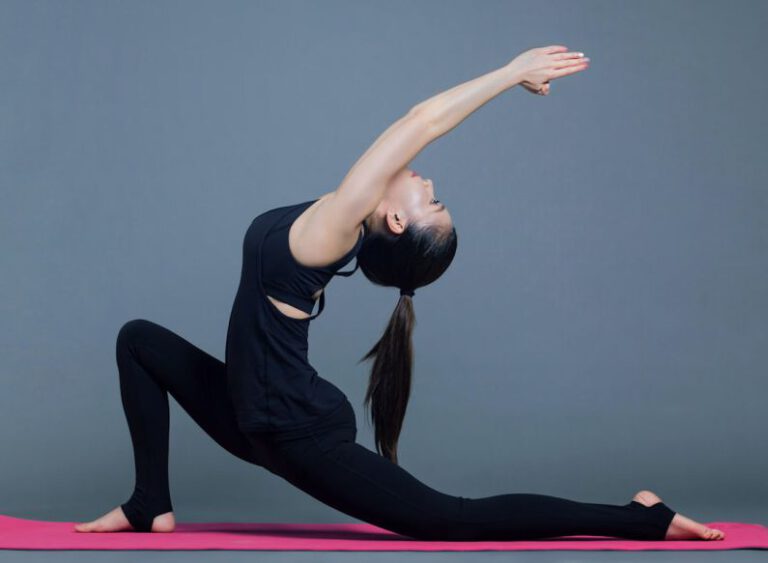30-day Fitness Challenge for Beginners
Embarking on a fitness journey can be daunting, especially if you’re a beginner. The idea of committing to a fitness challenge might seem overwhelming at first, but taking it one step at a time can make a significant difference. A 30-day fitness challenge is a great way to kickstart your fitness journey, build healthy habits, and see tangible results. Whether you’re looking to improve your strength, flexibility, or endurance, this guide will help you navigate through a 30-day fitness challenge tailored for beginners.
Setting Realistic Goals
Before diving into any fitness challenge, it’s essential to set realistic and achievable goals. Assess your current fitness level and identify areas you want to improve. Whether your goal is to lose weight, tone your muscles, or increase your stamina, having a clear objective will keep you motivated throughout the challenge. Remember, progress takes time, so be patient with yourself and celebrate small victories along the way.
Creating a Balanced Workout Plan
A balanced workout plan is key to a successful 30-day fitness challenge. Incorporate a mix of cardiovascular exercise, strength training, and flexibility exercises to target different muscle groups and improve overall fitness. Aim for at least 30 minutes of moderate-intensity exercise most days of the week, allowing for rest days to prevent burnout and aid in muscle recovery.
Cardiovascular Exercise
Cardiovascular exercise, such as brisk walking, jogging, cycling, or dancing, helps improve heart health, burn calories, and boost your overall fitness level. Aim for 150 minutes of moderate-intensity cardio each week, gradually increasing the duration and intensity as you progress through the challenge. Remember to warm up before your cardio workout and cool down afterward to prevent injury and promote recovery.
Strength Training
Strength training is essential for building muscle mass, increasing metabolism, and improving overall strength and endurance. Incorporate bodyweight exercises like squats, lunges, push-ups, and planks into your routine to target different muscle groups. Start with lighter weights or resistance bands if you’re new to strength training and focus on proper form to avoid injury. Gradually increase the intensity and weight as your strength improves over the 30-day challenge.
Flexibility Exercises
Flexibility exercises, such as yoga or stretching routines, help improve range of motion, reduce muscle tension, and prevent injuries. Dedicate time each day to stretch major muscle groups, focusing on areas that feel tight or restricted. Incorporating yoga poses or Pilates exercises into your routine can also improve balance, posture, and body awareness. Listen to your body and avoid pushing yourself too hard, especially if you’re new to stretching.
Staying Hydrated and Nourished
Proper hydration and nutrition play a crucial role in supporting your fitness journey. Drink an adequate amount of water throughout the day to stay hydrated, especially before, during, and after exercise. Fuel your body with balanced meals rich in lean proteins, whole grains, fruits, and vegetables to provide the energy and nutrients needed for your workouts. Consider keeping a food diary to track your meals and snacks, ensuring you’re meeting your nutritional needs during the challenge.
Tracking Your Progress
Tracking your progress throughout the 30-day fitness challenge can help you stay motivated and accountable. Keep a workout journal or use a fitness app to record your daily exercises, sets, reps, and any modifications you make along the way. Take measurements of your body, track your weight, or snap progress photos to visually see the changes happening as you commit to the challenge. Celebrate your achievements, no matter how small, and use setbacks as opportunities to learn and grow.
Embracing a Healthy Lifestyle
A 30-day fitness challenge is not just about physical exercise; it’s also about embracing a healthy lifestyle that supports your overall well-being. Get an adequate amount of sleep each night to allow your body to rest and recover from workouts. Manage stress through relaxation techniques like deep breathing, meditation, or mindfulness practices. Surround yourself with a supportive community of friends, family, or workout buddies who can encourage and motivate you throughout the challenge.
Celebrating Your Success
As you reach the end of your 30-day fitness challenge, take a moment to reflect on how far you’ve come and the progress you’ve made. Celebrate your success, whether it’s completing all 30 days of the challenge, achieving a personal best in a workout, or simply committing to a healthier lifestyle. Use your newfound confidence and strength to set new fitness goals, continue challenging yourself, and inspire others to embark on their fitness journey. Remember, fitness is a journey, not a destination, so keep pushing yourself, staying committed, and enjoying the process of becoming the best version of yourself.






